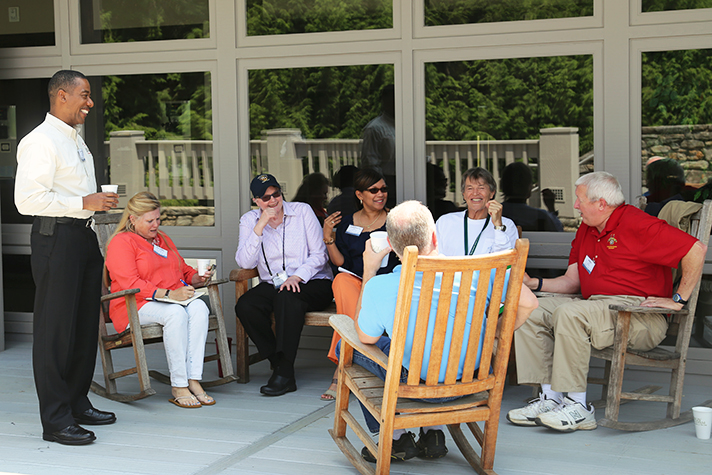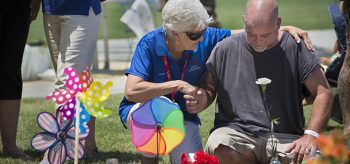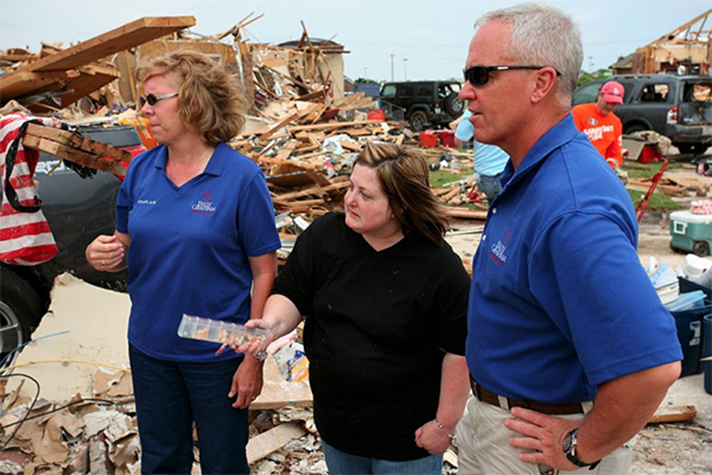
Most people run from a crisis, but the Billy Graham Rapid Response Team (RRT) chaplains run to it, including 73-year old Paul Pinner.
Pinner went on his first deployment to Fairdale, Illinois, after a tornado stormed through the small town in April, destroying 41 out of 46 homes. Fairdale is less than an hour’s drive from Pinner’s own home, as RRT contacts and deploys those closest to the disaster first.
Still, many chaplains travel across several states to help in crisis. They are willing to put their own lives on hold to share hope and minister to others during times of disaster. From unrest in Ferguson and Baltimore to the devastation of the floods in Texas, RRT chaplains have been there when many communities needed it most.
“You see hostility; you see anger; you see grief,” Pinner said. “You see all these things put together and when you total it all up and they’re still in front of you, they’re still alive by the grace of God. They survived for a reason.”
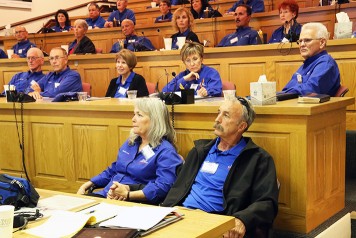
Pinner, along with hundreds of other chaplains, attended a four-day conference at the Billy Graham Training Center at The Cove in Asheville, North Carolina, to receive training on how to help those who may not realize there’s a reason they survived.
Rapid Response Team chaplains, as well as chaplains from various other ministries, chose from multiple course sessions, including emotional and spiritual care, grief following trauma, pastoral crisis prevention and suicide prevention.
“You don’t practice until you get it right; you practice until you can’t get it wrong,” instructor Tina Brooks told the chaplains as she encouraged them to be sure of their actions in the field.
Minutes later, Brooks stood directly in front of a man who was a law enforcement officer, demonstrating how she was wrongly blocking his line of sight. Although she may have been more comfortable addressing him this way than standing shoulder to shoulder, she needed to step outside her comfort zone for the sake of another.
“It’s not about you,” Brooks continued. “You have to let your culture meet theirs … let go of your needs to meet their needs.”
This mindset requires the chaplains to unconditionally love others. Even so, the chaplains are only human, and must rely on the strength of God and the Holy Spirit as they face those who are hurting.
“I don’t know all the answers and I can’t fix it,” Pinner said. “It happened and I’m just there beside them to listen to what they have to say, encourage them. And if they’re people of faith, pray with them. And if they’re not people of faith, perhaps they want to become people of faith.”
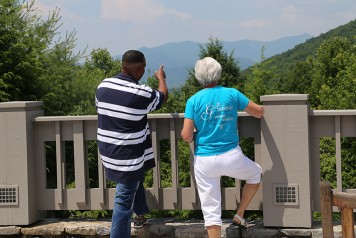
While the conference didn’t try to answer the difficult question of why God allows disaster, it did spiritually refresh the chaplains and refill their cups so they can go out and pour into the lives of others.
In between sessions, chaplains enjoyed a time of unity and fellowship while sitting in rocking chairs overlooking the beautiful Blue Ridge Mountains. Many knew each other from past deployments, while others became quick friends as they swapped stories and encouraged each other.
Ultimately, they all share one heart—to minister to the brokenhearted. And although there’s no way to fully prepare for disaster, the conference training equips them for the crises ahead.
“I think it’s essential that you have to come here to try to understand what you’re going to experience in the field,” chaplain Mike Wings said. “But there’s no substitute for the field.”
When the next disaster strikes, RRT chaplains will run in when most others are running out. They’ll go to offer rest to those searching for peace, and hope to those who are hopeless—so that people who feel they have nothing can have everything in Christ alone.
